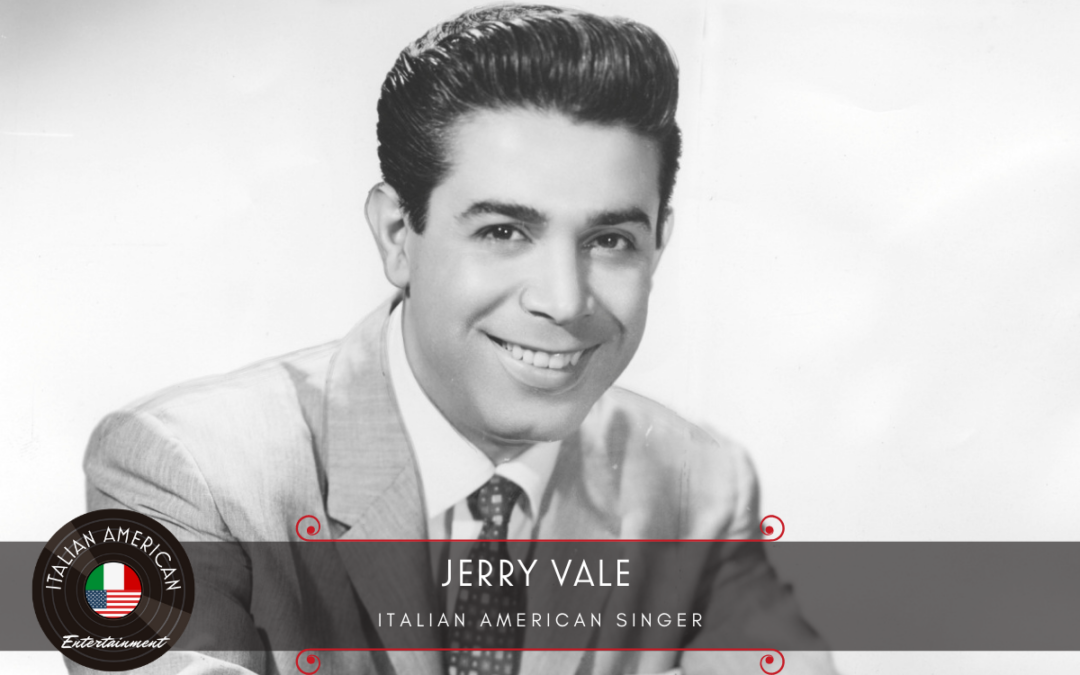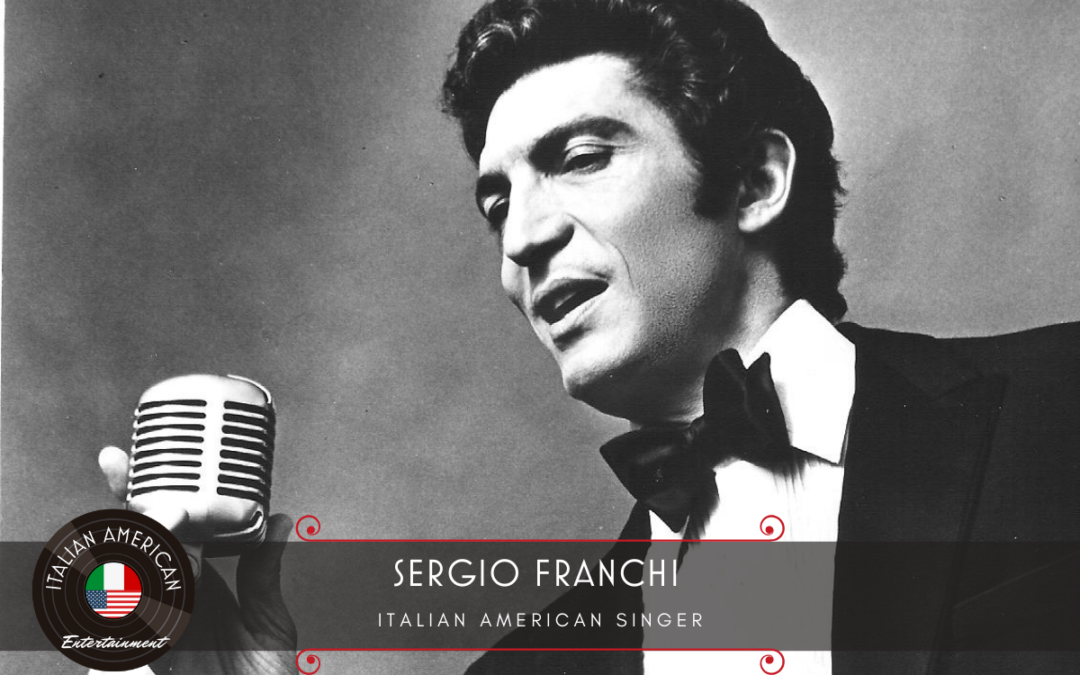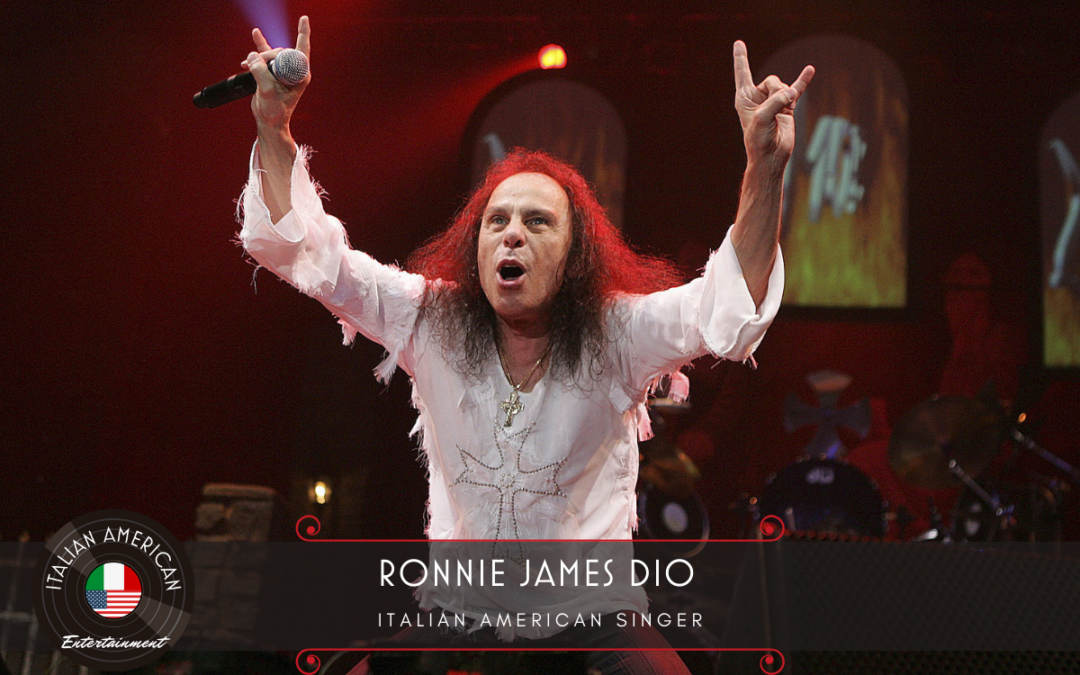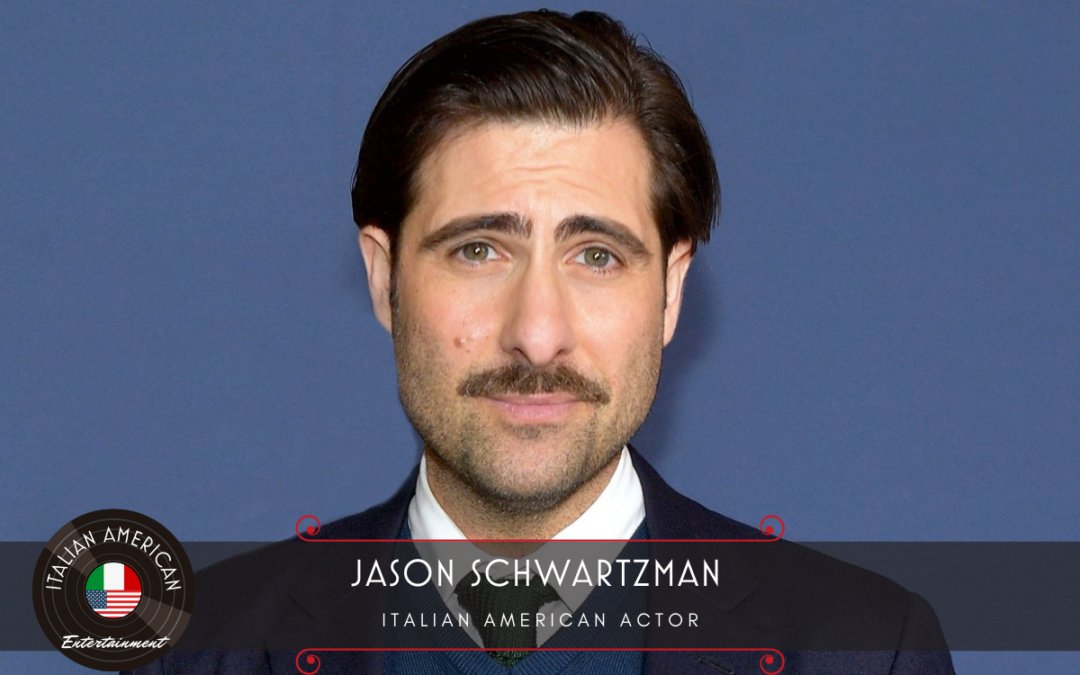
by Vince Chiarelli | Sep 1, 2021 | Musicians
Gwen Renée Stefani was born on October 3, 1969, in Fullerton, California, and raised Catholic in nearby Anaheim, California. Her father, Dennis Stefani, is Italian-American and worked as a Yamaha marketing executive. Stefani’s parents were fans of folk music and exposed her to music by artists like Bob Dylan and Emmylou Harris.
Her brother Eric introduced Gwen to 2 Tone music by Madness and the Selecter and, in 1986, he invited her to provide vocals for No Doubt, a ska band he was forming. In 1991 the band was signed to Interscope Records. The band released its self-titled debut album in 1992, but its ska-pop sound was unsuccessful due to the popularity of grunge. Before the mainstream success of both No Doubt and Sublime, Stefani contributed guest vocals to “Saw Red” on Sublime’s 1994 album Robbin’ the Hood. Stefani rejected the aggressiveness of female grunge artists and cited Blondie singer Debbie Harry’s combination of power and sex appeal as a major influence. No Doubt’s third album, Tragic Kingdom (1995), which followed the self-released The Beacon Street Collection (1995), took more than three years to make. Five singles were released from Tragic Kingdom, including “Don’t Speak”, which led the Hot 100 Airplay year-end chart of 1997. Stefani left college for one semester to tour for Tragic Kingdom but did not return when touring lasted two and a half years. The album was nominated for a Grammy and sold more than 16 million copies worldwide by 2004. In late 2000, Rolling Stone magazine named her “the Queen of Confessional Pop”.
During the time when No Doubt was receiving mainstream success, Stefani collaborated on the singles “You’re the Boss” with the Brian Setzer Orchestra, “South Side” with Moby, and “Let Me Blow Ya Mind” with Eve. No Doubt released the less popular Return of Saturn in 2000, which expanded upon the new wave influences of Tragic Kingdom.[26] Most of the lyrical content focused on Stefani’s often rocky relationship with then-Bush frontman Gavin Rossdale and her insecurities, including indecision on settling down and having a child. The band’s 2001 album, Rock Steady, explored more reggae and dancehall sounds, while maintaining the band’s new wave influences. The album generated career-highest singles chart positions in the United States,[29] and “Hey Baby” and “Underneath It All” received Grammy Awards. A greatest hits collection, The Singles 1992–2003, which includes a cover of Talk Talk’s “It’s My Life”, was released in 2003. In 2002, Eve and Stefani won a Grammy Award for Best Rap/Sung Collaboration for “Let Me Blow Ya Mind”.
Stefani’s debut solo album Love. Angel. Music. Baby. was released on November 12, 2004. The album features several collaborations with producers and other artists, including Tony Kanal, Tom Rothrock, Linda Perry, André 3000, Nellee Hooper, the Neptunes and New Order. Stefani created the album to modernize the music to which she listened when in high school, and L.A.M.B. takes influence from a variety of music styles of the 1980s and early 1990s such as new wave, synthpop, and electro. Stefani’s decision to use her solo career as an opportunity to delve further into pop music instead of trying “to convince the world of [her] talent, depth and artistic worth” was considered unusual. The album was described as “fun as hell but … not exactly rife with subversive social commentary”. The album debuted on the US Billboard 200 albums chart at number seven, selling 309,000 copies in its first week. L.A.M.B. reached multi-platinum status in the United States, the United Kingdom, Australia, and Canada.
Stefani announced her relationship with Blake Shelton, country music artist and The Voice co-star, in November 2015. The couple announced their engagement on October 27, 2020, and married on July 3, 2021, at Shelton’s Oklahoma ranch.
Throughout her career as a solo artist, Stefani has won several music awards, including one Grammy Award, four MTV Video Music Awards, one American Music Award, one Brit Award, and two Billboard Music Awards. With No Doubt, she has won two Grammy Awards. In 2005, Rolling Stone called her “the only true female rock star left on radio or MTV” and featured her on the magazine’s cover. Stefani received the Style Icon Award at the first People Magazine Awards in 2014. In 2016, the singer was honored at the Radio Disney Music Awards with a Hero Award, which is given to artists based on their personal contributions to various charitable works.
Stefani has been referred to as a “Pop Princess” by several contemporary music critics. In 2012, VH1 listed the singer at the number thirteen on their list of “100 Greatest Women in Music”.
Source

by Vince Chiarelli | Jul 8, 2021 | Blog, Musicians
Vale was born Gennaro Louis Vitaliano in the Bronx, New York, to Italian immigrant parents, and grew up in the Wakefield section of the Bronx which at the time was composed mainly of Italian-American families. In high school, to earn money, Vale took a job shining shoes in a barbershop, singing while he worked. His boss, Vito Veneziano, liked the sound so well that he paid for music lessons for the boy. Vale started singing in high school musicals and at a local nightclub. Still a teenager, he left school to work in a factory as an oiler alongside his father.
Vale’s early nightclub performances led to additional shows in the early 1950s, including one lasting for three years at the Enchanted Room, a club in Yonkers, New York. When Paul Insetta (road manager for singer Guy Mitchell and hit songwriter) heard him there, he signed him to a management contract and further coached him. Insetta arranged for Vale to record some demonstration records of songs he’d written, and he brought them to Columbia Records. Guy Mitchell introduced Vale to Mitch Miller, then head of A&R at Columbia Records. Vale signed a recording contract, with Insetta as his manager for many years to come.
Jerry Vale appeared on the Ted Mack Amateur Hour in 1950 singing “It Isn’t Fair”.
Vale’s first recording with the Columbia label, with accompaniment by Percy Faith and his band, was “You Can Never Give Me Back My Heart”, reached #29 on the Billboard Hot 100 chart, becoming Vale’s first U.S. hit.
His version of “The Star-Spangled Banner”, recorded in late 1963, was a fixture at many sporting events for years, and the gold record Vale received was displayed at the National Baseball Hall of Fame in Cooperstown, New York. Vale frequently sang the song at Yankee Stadium. Additionally, he owned the Daytona Beach Admirals.
He sang the Late Night with David Letterman anthem “It’s A Late Night World” on the program’s eighth anniversary special in 1990. He made cameo appearances as himself in the 1990 film Goodfellas and the 1995 film Casino, both directed by Martin Scorsese.
Vale reportedly suffered a stroke in 2002 and did not perform in his later years.
Jerry Vale died of natural causes in his sleep on May 18, 2014, at his home in Palm Desert, California. Vale was 83 years old.
As an actor, Vale appeared as himself in the films Goodfellas and Casino as well as in television series such as The Sopranos, Who’s The Boss and Growing Pains.
In the 2016 Disney animated film Zootopia, Nick Wilde finds a CD by “Jerry Vole”. Vale is portrayed by Steven Van Zandt in the 2019 film The Irishman.
In 1998, a Golden Palm Star on the Palm Springs Walk of Stars was dedicated to Vale.
Source

by Vince Chiarelli | Jun 14, 2021 | Musicians
Rivers Cuomo was born on June 13, 1970, in New York City. His father, Frank Cuomo, was a musician who played drums on the 1971 album Odyssey of Iska by jazz saxophonist Wayne Shorter.
Rivers was raised in Rochester, New York, at the Rochester Zen Center, until his father left the family in 1975. His mother relocated the family to Yogaville, an ashram in Pomfret, Connecticut. Cuomo attended the Pomfret Community School, and his mother married Stephen Kitts.
In 1980, Yogaville relocated to Virginia. The Kitts family opted to stay in Connecticut and moved to the Storrs Mansfield area. During this time, Cuomo attended Mansfield Middle School and E.O. Smith High School. Rivers was a member of the high school choir and he performed in a school production of Grease as Johnny Casino.
One of Cuomo’s earliest music projects was the glam metal band Avant Garde. In 1989, after playing several shows in Connecticut, Avant Garde moved to Los Angeles and changed their name to Zoom, but broke up in 1990. In 1990 and 1991, while Cuomo was writing material for what became Weezer’s debut album, he was a roadie for the band King Size and worked at Tower Records, where he listened to “basically everything that was released at that time … I was exposed to a ton of music I otherwise never would have heard.”
Cuomo formed Weezer in 1992 with drummer Patrick Wilson, bassist Matt Sharp and guitarist Jason Cropper. “Weezer” was the nickname given to Cuomo by his father when he was a toddler. Weezer signed with DGC, a subsidiary of Geffen Records, on June 25, 1993, and released their self-titled debut album, also known as the Blue Album, in May 1994. Cropper left the band during the album recording and was replaced by Brian Bell. The album was certified platinum on January 1, 1995, with sales of over one million. Despite his success, Cuomo tired of the monotony and loneliness of touring and developed a “huge inferiority complex” about rock music, saying: “I thought my songs were really simplistic and silly, and I wanted to write complex, intense, beautiful music.”
In the fall of 1995, Cuomo enrolled in Harvard University to study classical composition. He told The New York Times: “The only time I could write songs was when my frozen dinner was in the microwave. The rest of the time I was doing homework.” He auditioned for the Harvard-Radcliffe Collegium Musicum chorus but was not selected. He became introverted and grew a beard, and wrote in his diaries how students wearing Weezer T-shirts did not recognize him.
Cuomo had planned Weezer’s second album to be a rock opera, Songs from the Black Hole, but he abandoned the project as his songwriting became “darker, more visceral and exposed, less playful”. Realizing he did not enjoy contemporary classical music, and missing Weezer, Cuomo dropped out of Harvard two semesters before graduation. He expressed the isolation and sexual frustration he had felt at Harvard in Weezer’s second album, Pinkerton, released in September 1996. With a darker, more abrasive sound than Weezer’s debut, Pinkerton was a commercial and critical failure, but attained critical acclaim later.
Following Pinkerton, Weezer went on a three-year hiatus. Cuomo enrolled at Harvard twice more and completed semesters in 1997 and 2004. During the 1997 semester, he played with a new band, Homie, in Boston. In February 1998, Cuomo disbanded Homie and moved to Los Angeles to work on new Weezer demos with Bell and Wilson, but the sessions were unproductive. In 1998 and 1999, he lived in an apartment under a freeway in Culver City, California. In an essay for Harvard, he wrote: “I became more and more isolated. I unplugged my phone. I painted the walls and ceiling of my bedroom black and covered the windows with fiberglass insulation.”
Disappointed by Pinkerton’s reception, Cuomo intended to return to simpler songwriting with less personal lyrics. He stated that Weezer’s subsequent albums, the Green Album (2001) and Maladroit (2002), were “very intentionally not about me. Not about what was going on in my life, at least in a conscious way.” He also developed a greater appreciation for pop music, feeling that its multiple disciplines — including lyrics, improvisation, and image — produce a multifaceted art “that moves people and is important, and relevant to our culture in a way that serious classical music isn’t right now”. In June 2006, he graduated cum laude with a Bachelor of Arts in English from Harvard and was elected to Phi Beta Kappa.
On December 6, 2009, Cuomo was in his tour bus driving to Boston from Toronto with his family and assistant when the bus hit an icy road in Glen, New York and crashed. He suffered cracked ribs and internal bleeding. Weezer canceled the rest of the 2009 tour dates, planning to reschedule them the following year. They made their return to the stage on January 20, 2010, performing at Florida State University in Tallahassee, Florida.
In December 2007, Cuomo released Alone: The Home Recordings of Rivers Cuomo, a compilation of his demos recorded from 1992 to 2007. It was followed by Alone II: The Home Recordings of Rivers Cuomo in November 2008 and Alone III: The Pinkerton Years in November 2010; the latter album was sold exclusively with a book, The Pinkerton Diaries, which collects Cuomo’s writings from the preceding the release of Pinkerton.
Cuomo credited the Beach Boys as a major influence on his early songwriting. He told Upset:
I remember when I was 21 or 22, right when Weezer got together. I went to the local used record shop in Santa Monica with the intention of buying a classic album that was going to be a huge influence on me and my writing for Weezer. I flipped through all the records and I narrowed it down to two records. One of them was Led Zeppelin, the other was Pet Sounds by the Beach Boys. It was almost a coin toss but I ended up going with Pet Sounds, and I really came to love the melodies and the chord progression and the emotion on that record. It has to be one of the biggest influences right when Weezer was starting out.
Cuomo’s other influences include the Beatles, Kiss, Nirvana, Giacomo Puccini, Green Day, Jane’s Addiction, Cat Stevens, Lou Barlow, the Who, Pixies, Stevie Ray Vaughan, Mike Smith and Sonic Youth. In the late 90s, Cuomo created an “Encyclopedia of Pop” for himself, a three-ring binder which examined pop and rock songs by artists including Nirvana, Green Day and Oasis. In 2008, he said his biggest recent inspiration was rapper Eminem, praising his “creativity, passion, inventiveness, and playfulness”.
Source

by Vince Chiarelli | Jun 1, 2021 | Blog, Musicians
Sergio Franci Galli was one of three children born to a Neapolitan father and Ligurian (Genoa) mother. Sergio, Mirella, and Fausta were all born in the Lombardy District. This includes Milan, Cremona, and the smaller village of Codogno – where he was born.
As a child, Franchi sang for the family with his father, who played the piano and guitar. At age ten, he sang a comic role as a hunchback in a school play. Young Franchi formed a three-piece band at age sixteen to earn pocket money, and then later sang with a male vocal group in local jazz clubs. But, in spite of his musical talents, he soon followed his father’s wishes that he pursue a career in engineering. Franchi pursued, but did not finish this training. The senior Galli had been a successful businessman who owned several shops, but lost all of his assets during World War II and the German occupation. After the war, he became friendly with a Captain in the South African medical corps who was stationed nearby. He soon followed the officer’s suggestion that South Africa would be a land of more opportunity, and he immigrated to Johannesburg. The family followed in 1947 when Franchi completed his compulsory military service at age twenty-one.
When the family arrived in Johannesburg, they found that the senior Galli, a skilled wood craftsman, had established a successful furniture factory. Young Franchi began using his skills as an architectural draftsman and worked for his father as a designer of commercial and industrial interiors. He also began singing in informal concerts of Italian music. His voice attracted growing attention. Hearing him sing, one of the principals of the Johannesburg Operatic and Dramatic Society (JODS) tracked him down and offered him the leading role in The Gypsy Baron. (Franchi’s sister Dana Valery played one of the children.) Speaking little English at the time, he learned the role phonetically. Franchi’s debut was well-received, and was soon followed by leading roles in Pink Champagne (Die Fledermaus in English)(1953), The New Moon (1954), and The Vagabond King (1955). Johannesburg’s once-thriving local opera season had collapsed after WWII, and it was not possible at this time to earn a full-time wage as a singer.
Alessandro Rota, a successful operatic tenor in the Southern Hemisphere, came from Cape Town to Johannesburg in 1955 and helped form The National Opera Association. Rota began making a difference by producing operatic concerts, full acts from operas, and then full opera productions. Under Rota’s tutelage, Franchi’s voice matured, and he expanded his vocal range and technique. About his first experience with the fledgling opera company in a production of Carmen, Franchi later stated this initial experience was a disaster: He sang the tenor part in Italian, the baritone sang in Russian, and the soprano sang her role in French. The company quickly matured and Rota placed Franchi in leading tenor roles in at least two successful full opera productions – Puccini’s Madama Butterfly in 1957, and then Verdi’s La traviata in 1959. Some references also list Franchi singing lead performances in Verdi’s Rigoletto and Puccini’s La boheme.
With these experiences, Franchi returned to Italy, aspiring for more opportunities to become an opera singer. While on a performing tour of South Africa, Beniamino Gigli had heard Franchi sing and had encouraged him and his family in this regard. In 1959 Franchi made an important contact with an English agent, James Gilmore, who encouraged Franchi to meet with him if he came to London.
Franchi had some success when he was leaving Italy in 1959, such as being among the 10 finalists in a La Scala competition with 250 other singers. He was also offered the role of Cavaradossi in Tosca, which he played in a minor opera house. Looking back in 1983 about hoping to make it in Italian opera, Franchi stated that he didn’t think he was in his right mind: “I was a dreamer.” At the time he believed he was doing well, so he sent for his wife and children. However employment opportunities ceased, and within a year Franchi was broke.
Franchi then looked for work in Italy while his wife and children remained in South Africa. He began recording with Durium Records for the popular market, having hits with “more mio” and “I tuoi occhi verde.” An album of Italian songs and several EPs and singles in Italy, London, and Canada followed (these recordings were eventually released for American audiences.) As a result of his personal appearances and recordings, Franchi began drawing enough attention to become tracked on Billboard. In early 1960, Franchi played the role of Janni in the short-lived London production of The Golden Touch. His singing performance received favorable reviews. His London agent, James Gilmore, arranged several TV appearances for Franchi, and that work (and political changes in South Africa) allowed him to return to his family in London.
Franchi arrived in New York on September 25, 1962. RCA Victor had begun a heavy promotional campaign to launch his American career, concurrent with the release of his debut album. Franchi made his American television debut with an appearance on The Ed Sullivan Show on October 14, 1962; and his Sol Hurok concert debut at Carnegie Hall on October 21, 1962. Singing the full length of the concert without a microphone, a New York reviewer commented on Franchi’s “big, healthy voice”, his penchant for ad-libbing, and his ability to establish instant rapport with his audience.
Ed Sullivan was in the audience that night and soon contracted for future Franchi appearances—including a second TV appearance on his show the following week (October 28, 1962). Franchi would later become one of Sullivan’s “two or three most favorite guests,”, and appeared 24 times. Sales for the debut record did well, peaking on the Billboard 200 at number 17 at the end of December. The year was concluded with successful concert appearances in Washington, D.C.’s Constitution Hall and in Boston’s Music Hall
He soon made his Las Vegas debut at the Sahara Hotel as the opening act for Bob Newhart. These successful performances were interspersed with multiple European events. Franchi recorded three more albums for RCA Victor (see discography), all three of which peaked on the Billboard 200 pop charts in 1963. His debut album, Romantic Italian Songs continued on the Billboard 200; He completed the year as the opening act for Juliet Prowse at the Cocoanut Grove.
1964 was a significant year for Franchi for professional and personal reasons. In a move to attract more mainstream pop audiences, RCA Victor switched Franchi from the Red Seal label to their standard black pop label. He also changed his professional representation to the William Morris Agency. Although he had already received offers to star in several films, Franchi did not find a role he wished to play for a few more years. Franchi then moved his family from London to a Park Avenue apartment in New York City. He also filed the first papers in declaration of his intent to become an American citizen, among other endeavors.
Franchi was always attracted to the arts, and could play multiple instruments, including piano and guitar. Franchi also always carried a sketch book with him on all of his travels, and in later life, devoted himself to watercolor painting in his private studio.
His last of more than 130 television appearances was on Live! with Regis & Kathie Lee on July 4, 1989 and Franchi’s last concert was at the Warwick Musical Theater on Saturday, July 29, 1989. On August 3, 1989, while rehearsing for a South Shore Music Circus concert the next day (with Pat Cooper), Franchi collapsed, was hospitalized, and the rest of his summer concerts were cancelled. Tests revealed a brain tumor and, despite radiation therapy, Franchi succumbed to the illness. He died less than one month after his 64th birthday.
Source

by Vince Chiarelli | May 2, 2021 | Musicians
Ronald James “Dio” Padavona was born in Portsmouth, New Hampshire, to Italian-American parents from Cortland, New York. Padavona listened to a great deal of opera while growing up, and was influenced vocally by tenor Mario Lanza. His first formal musical training began at age 5, learning to play the trumpet. During high school Padavona formed his first rock-n-roll group, The Vegas Kings, which would later be named Ronnie and the Rumblers and then Ronnie and the Red Caps.
Padavona graduated from Cortland High School in 1960. He was allegedly offered a scholarship to the prestigious Juilliard School of Music but did not take up the offer due to his interest in rock music. He instead attended the University at Buffalo to major in pharmacology. There he played trumpet in the university’s concert band; however, he only attended the university from 1960 to 1961 and did not graduate.
Despite being known for his powerful singing voice, Padavona claimed to have never received any vocal training. He instead attributed his singing ability to the use of breathing techniques he learned while playing trumpet.
Dio’s musical career began in 1957, when several Cortland, New York musicians formed the band, The Vegas Kings. The group’s lineup consisted of Dio on bass guitar, Billy DeWolfe on lead vocals, Nick Pantas on guitar, Tom Rogers on drums, and Jack Musci on saxophone. The band changed its name to Ronnie and the Rumblers. In 1958, the band again changed their name to Ronnie and the Redcaps. Musci left the band in 1960, and a new guitarist, Dick Botoff, joined the lineup. The Redcaps released two singles: The first single was “Conquest”/”Lover” with the A-side being an instrumental reminiscent of The Ventures and the B-side featuring DeWolfe on lead vocals. The second single was “An Angel Is Missing”/”What’d I Say” featuring Dio on lead vocals for both tracks.
Explanations vary for how Padavona adopted the stage name “Dio”. One story is that Dio was a reference to mafia member Johnny Dio. Another has it that Padavona’s grandmother said he had a gift from God and should be called “Dio” (“God” in Italian), although this was debunked by Padavona’s widow, Wendy, in a February 2017 interview. Padavona first used the name on a recording in 1960, when he added it to the band’s second release on Seneca. Soon after that the band modified their name to “Ronnie Dio and the Prophets”. The Prophets lineup lasted for several years, touring throughout the New York region and playing college fraternity parties. They produced one single for Atlantic Records and one album. Some of the singles (such as “Mr. Misery”, released on Swan) were labeled as being by Ronnie Dio as a solo artist even if the rest of the Prophets contributed to the recording. The group released several singles during the following years until early 1967. Dio continued to use his birth name on any songwriting credits on those releases.
In late 1967, Ronnie Dio and the Prophets transformed into a new band called The Electric Elves and added a keyboard player. After recovering from a deadly car accident in February 1968, which killed guitarist Nick Pantas and put Dio and the other band members briefly in the hospital, the group shortened its name to The Elves and used that name until mid-1972, when it released its first proper album under the name Elf. Over the next few years, the group went on to become a regular opening act for Deep Purple. Elf recorded three albums until the members’ involvement recording the first Rainbow album in early 1975 resulted in Elf disbanding.
In the mid-1970s Dio’s vocals caught the ear of Deep Purple guitarist Ritchie Blackmore, who was planning on leaving Deep Purple due to creative differences over the band’s new direction. Blackmore invited Dio along with Gary Driscoll to record two songs in Tampa, Florida on December 12, 1974. Blackmore stated in 1983, “I left Deep Purple because I’d met up with Ronnie Dio, and he was so easy to work with. He was originally just going to do one track of a solo LP, but we ended up doing the whole LP in three weeks, which I was very excited about.”[20] Being satisfied with the results, Blackmore decided to recruit more of Elf’s musicians and form his own band, initially known as Ritchie Blackmore’s Rainbow. They released the self-titled debut album Ritchie Blackmore’s Rainbow in early 1975. After that, Dio recorded two more studio albums (Rising and Long Live Rock ‘n’ Roll), the live album On Stage, and two archival live albums (Live in Munich 1977 and Live in Germany 1976) with Blackmore. During his tenure with Rainbow, Dio and Blackmore were the only constant members. Dio is credited on those albums for all lyrical authorship as well as collaboration with Blackmore on musical arrangement. Dio and Blackmore split, with Blackmore taking the band in a more commercial direction, with Graham Bonnet on vocals and the album Down to Earth.
Following his departure from Rainbow in 1979, Dio joined Black Sabbath, replacing the fired Ozzy Osbourne. Dio met Sabbath guitarist Tony Iommi by chance at The Rainbow on Sunset Strip in Los Angeles in 1979. Both men were in similar situations, as Dio was seeking a new project and Iommi needed a vocalist. Dio said of the encounter, “It must have been fate, because we connected so instantly.” The pair kept in touch until Dio arrived at Iommi’s Los Angeles house for a relaxed, getting-to-know-you jam session. On that first day the duo wrote the song, “Children of the Sea”, which appeared on the Heaven and Hell album, the first the band recorded with Dio as vocalist, released in 1980.
The follow-up album, Mob Rules, featured new drummer Vinny Appice. Personality conflicts began emerging within the band. “Ronnie came into the band and he was doing whatever we told him, basically because he wanted the gig. The next album was a little different,” Iommi recalled. In 1982, conflict arose over the mixing of the Live Evil album. Iommi asserted that the album’s engineer began complaining to him that he would work all day long on a mix, only to have Dio return to the studio at night to “do his own mix” in which his vocals were more prominent. This was denied by Dio. The conflict led to Dio and Appice ultimately quitting the band later that year.
In 1991, Dio returned to Black Sabbath to record the Dehumanizer album. The album was a minor hit, reaching the Top 40 in the United Kingdom and #44 on the Billboard 200. The single “Time Machine” was featured in the movie Wayne’s World, the tenth highest-grossing film of 1992. Close to the end of 1992 Dio and Appice again left the band, citing an inability to work with Iommi and Butler.
Wanting to continue together as a band, Dio and Appice formed Dio, the band, in 1982. Vivian Campbell played guitar and Jimmy Bain was on bass; the latter of whom Dio had known since the old Rainbow days. Their debut album, Holy Diver, included the hit singles “Rainbow in the Dark” and “Holy Diver”.
The band added keyboardist Claude Schnell and recorded two more full-length studio albums, The Last in Line and Sacred Heart. A notable live recording, A Special From The Spectrum, was filmed during the band’s second world tour and released in VHS format only. The band changed members over the years, eventually leaving Dio as the only original member in 1990. Except for a few breaks, Dio, the band, was always touring or recording. They released ten albums, with Master of the Moon being the last one, recorded in 2004.
In October 2006, Dio joined Black Sabbath members Tony Iommi, Geezer Butler, and former Black Sabbath drummer Vinny Appice to tour under the moniker Heaven & Hell, the title of the first Dio era Black Sabbath album. They chose the name Heaven & Hell as Iommi and Butler were still in Black Sabbath with Osbourne and felt it was best to use a different moniker for the Dio version of the band. Original Black Sabbath drummer Bill Ward was to be involved in this project, but later withdrew.
In 2007, the band recorded three new songs under the Black Sabbath name for the compilation album Black Sabbath: The Dio Years.
In 2008, the band completed a 98-date world tour. The band released one album under the Heaven & Hell name, The Devil You Know, to critical and commercial acclaim. They also had planned to release a follow-up in 2010.
Dio and his first wife, Loretta Berardi, adopted a son, novelist Dan Padavona. After divorcing Berardi, in 1978 he married Wendy Gaxiola who also served as his manager. In the 1980s, she managed the Los Angeles rock bands Rough Cutt, NuHaven, Cold Sweat and Hellion. They divorced around 1985, although Wendy remained his manager as well as his friend during all of Dio’s career. Some time later, they reconciled and entered a unofficial marriage, but did not formally marry again.
In September 2003, he accidentally severed his thumb during a gardening accident when a heavy garden gnome fell onto it. Dio was concerned he would no longer be able to do his signature metal horns hand gesture, but a doctor managed to re-attach it.
On November 25 2009, Dio announced that he was diagnosed with stomach cancer and underwent treatment at the MD Anderson Cancer Center in Houston, Texas.
On May 4, 2010, Heaven & Hell announced they were canceling all summer dates as a result of Dio’s health condition. His last live performance was with Heaven & Hell on August 29, 2009, in Atlantic City, New Jersey. Dio died of the illness on May 16, 2010.
Dio’s career spanned more than 50 years. During this period, and particularly in the 21st century, he received a number of distinctions and awards. He was inducted into the Cortland City Hall of Fame in 2004 and has a street named after him there called Dio Way. Classic Rock Magazine awarded Dio the “Metal Guru Award” at their yearly “Roll of Honour” awards ceremony in 2006. On January 17, 2007, Dio was inducted into Guitar Center’s Rock Walk of Fame in Hollywood. Dio was named “Best Metal Singer” at the Revolver Golden Gods Awards in April 2010 for his work on The Devil You Know, making him the oldest recipient of this award at age 67. He accepted the award in person at what was to be his final public appearance, just one month before his death.
Source

by Vince Chiarelli | Mar 15, 2021 | Film, Musicians, Television
Jason Francesco Schwartzman was born in Los Angeles on June 26, 1980, the son of actress Talia Shire (Coppola) and film producer Jack Schwartzman. His paternal grandparents were Polish Jews, while his mother is an Italian-American Catholic. His younger brother, Robert Schwartzman, is also an actor and musician. His paternal half-siblings are Stephanie and cinematographer John Schwartzman. As a member of the Coppola family, many of his relatives are also involved in the entertainment industry—he is the nephew of filmmaker Francis Ford Coppola and opera conductor Anton Coppola; the cousin of actor Nicolas Cage and filmmakers Sofia Coppola, Roman Coppola, and Christopher Coppola; and the grandson of Coppola family matriarch Italia Coppola (Pennino) and composer Carmine Coppola. He attended Windward School in the Mar Vista neighborhood of Los Angeles.
Schwartzman’s acting career began in 1998, at which point he was 17 years old, when he starred in Wes Anderson’s Rushmore. Shortly after in 2000, Jason had a guest role in the short-lived series Freaks and Geeks. In 2001, he starred in CQ, a film by his cousin Roman Coppola. In 2002, he starred in the comedy film Slackers, and in 2003 headlined the drama Spun. In 2004, he starred in I Heart Huckabees, and Shopgirl in 2005. He also appeared in various television shows, such as Cracking Up. In 2006, he starred in Marie Antoinette under the direction of his cousin, Sofia Coppola, in which he appeared as King Louis XVI.
Schwartzman made a cameo appearance as Ringo Starr in the biopic spoof Walk Hard: The Dewey Cox Story. In 2009, he appeared as C-list television star Mark in Funny People. He also voiced Ash Fox in Wes Anderson’s animated film Fantastic Mr. Fox, which he described as “the best movie [he’s] ever been a part of”. He starred in the HBO show Bored to Death, in which he played a writer who moonlights as a private detective and puts himself up for hire on Craigslist. In 2009, he starred in The Marc Pease Experience. In 2010, he played Gideon Graves in the film Scott Pilgrim vs. The World, the movie adaptation of the comics by Bryan Lee O’Malley.
In 2011, Schwartzman made a cameo appearance as Vincent van Gogh in the Beastie Boys short film Fight for Your Right Revisited. In 2013, he made a cameo appearance as himself in an episode of the television show Key & Peele. In 2014, he played himself in the Tim & Eric’s Bedtime Stories episode “The Endorsement”. In 2020, he began starring as Italian crime boss Josto Fadda in the fourth season of the FX anthology series Fargo.
Prior to acting, Schwartzman was the drummer and a songwriter for the band Phantom Planet. He appeared in the music video for the rock remix of “It’s All About the Benjamins” by Puff Daddy, and contributed to Ben Lee’s 2005 album Awake Is the New Sleep. In 2007, he created the indie rock solo act Coconut Records. The first album, entitled Nighttiming, was produced by Michael Einziger and features a cover photo from Roman Coppola. The album was first released on iTunes on March 20, 2007. It had musical contributions by members of Incubus, as well as appearances by actresses Zooey Deschanel and Kirsten Dunst and Schwartzman’s brother Robert. His second album, Davy, was released on iTunes on January 20, 2009. Schwartzman performed the musical score for Funny People and the theme song for Bored to Death. He has also written tracks for Smallville and Slackers. Schwartzman also played the drums on Phoenix’s rendition of The Beach Boys’ song “Alone on Christmas Day” in 2015. The song was featured in Bill Murray’s Netflix special, A Very Murray Christmas.
Schwartzman’s work has also been featured in many films and television programs. In 2009, he composed the theme song to his HBO series Bored to Death, in which he also starred, under his Coconut Records title. That same year, he also contributed to the film score to the film Funny People with composer Michael Andrews. The original soundtrack is downloadable, as well as available in vinyl LP, on Coconut Records’ official Cinder Block store. His song, “Microphone” was featured in the 2012 coming of age comedy, LOL.
Schwartzman married his long-time girlfriend, art and design director Brady Cunningham, at their home in the San Fernando Valley on July 11, 2009. Cunningham is the co-owner of TENOVERSIX in Los Angeles.
In 2009, he was named one of the “Top 10 Most Stylish Men in America” by GQ magazine. In 2011, he narrated a video called What to Eat: The Environmental Impacts of Our Food for Farm Sanctuary.
Source






